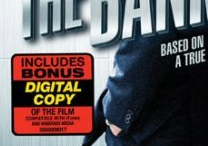MPAA vs Real Networks – Is RealDVD illegal?
By now, you should have heard about the MPAA’s lawsuit against Real Networks’ RealDVD software. To refresh, RealDVD is a DVD copying software from Real Networks. Unlike the many “illegal” DVD rippers around, RealDVD does not actually decrypt the CSS copy protection scheme on DVDs, and it even adds it’s own layer of DRM on top of that. The DVD files (with CSS encryption) are copied over to your hard-drive, and then with Real’s DRM, you are then limited to playback the copied files using Real’s DVD player software and only on the hard-drive that it was originally copied to (even if you clone the drive, or replace one drive in a RAID mirror array, the files will stop working).
In other words, CSS is not broken, and no attempts are made to break it. The additional DRM means that copied files cannot be shared even with your other computer, let alone friends and sharing online. You could use RealDVD to copy the DVD to a portable hard-drive, which then can be shared between computers, but you would also need to buy a license for the RealDVD player software on each computer that you wish to watch the copied movie on. The only possible route to piracy is if you rent and copy, as the original disc is not required to be present after the initial copy process. Similarly, you can borrow discs from friends and copy them to your hard-drive. Whether RealDVD has some kind of measure to stop this kind of casual piracy, I’m not too sure about (since the software is no longer available due to legal action). And I think in the end, it is this functionality which has the MPAA all worked up.
So the MPAA has sued Real Networks, an injunction is now in place to prevent RealDVD from being sold, and it doesn’t look good for Real Networks. But the question is “Is RealDVD illegal?”
The US DMCA legislation prevents circumvention of copy protection schemes such as CSS used on DVDs, regardless of whether the scheme is strong or not. In CSS’s case, it is not very strong at all, and any modern computer can crack the encryption in a matter of seconds/minutes through brute force methods. But despite that, breaking CSS is illegal in the US. However, RealDVD does not break CSS – in fact, it does not interact with CSS at all during the copy process, and only decodes it during playback like any other DVD player. The copied files are still encrypted, so CSS’s functionality remains intact. If what RealDVD does is considered ‘circumvention’, then you might say Windows Explorer’s Copy/Paste function is also ‘circumvention’, and file copying in general would be outlawed by the DMCA, which it obviously isn’t.
As for CSS, there is also a licensing agreement that goes with it. So instead of going after the copier component of RealDVD, the MPAA could go after RealDVD’s player component, which allows playback of CSS encrypted content without the original disc. You might remember sometime ago there was a court case involving a company called
Kaleidescape produces a hardware system that is similar to RealDVD, where DVDs are copied to a central server (with CSS intact), and the hardware player decrypts CSS encrypted movies from the hard-drive just as if it were from the original disc. The DVD CCA (the group behind CSS licensing) sued Kaleidescape and lost the case in court. An appeal is in progress as far as I know, but the current court ruling seems to favour RealDVD’s stance. Besides, it should be the DVD CCA launching the legal battle, not the MPAA.
RealDVD also adds its own layer of DRM protection, to prevent further file sharing (Kaleidescape’s system is encapsulated in hardware, so it has its own natural layer of DRM, but nothing on the same level of RealDVD). This should prove to the court that RealDVD is concerned about piracy as much as the MPAA. Because let’s face it, it takes all of two seconds to find an free DVD ripper software and once ripped, the files can be shared in any way you wish, so the DRM that RealDVD adds actually makes DVD copy protection stronger. It certainly doesn’t make it any weaker than it is, which is hardly possibly due to the weak encryption.
But what I feel is a very important issue in this case is the restriction of trade. The MPAA and movie studios have sounded out disc-less home theatre systems, and their own version of Managed Copy, which is still being planned for DVD (by Toshiba, the DVD Forum) and for Blu-ray (by the BDA, AACS LA). A Managed Copy system would be very similar to what RealDVD can do, and casual piracy would be hard to prevent. The studios have even said that the cost of casual piracy will be added to the cost of the package if MC is every introduced. So the only different between the MPAA’s solution to a disc-less HT is that the MPAA members would profit from such a venture, whereas Real’s solution means only Real profits. And I think this is why the MPAA is so worked up – Real is stealing their thunder and they don’t like it. The MPAA and studios have nobody to blame but themselves for this, because they’ve stalled on MC time and time again (despite heavy industry pressure from Microsoft, Intel, HP …), and MC is still a long way away from being a reality. If Real (and Kaleidescape) is smart enough to see the potential and make it a reality, then the MPAA really has no right to object, especially if no existing license agreement or law has been broken.
But I’m sure the MPAA won’t make this above argument, and instead, will concentrate on the point that RealDVD allows for casual piracy, and therefore, it must be illegal. Then again, casual piracy is also being enabled by devices such as VCR or DVD recorders, blank media, computers, even the concept of rentals, so where should one stop?
Suffice to say that a win for Real Networks would be to the benefit of consumers and the IT/CE industry in large, even if it is at the expense of movie studios. Instead of going to court, the MPAA and its members should be doing their best to produce an official alternative to RealDVD, a proper Managed Copy system that’s officially supported (and loss of revenue priced in). Discs are on their way out, and if the MPAA don’t realise this or don’t want to, then companies like Real should be free to satisfy consumer demands.





October 12th, 2008 at 4:17 pm
[…] DVDGuy’s Blog @ Digital Digest Just what the world needs, another blog « MPAA vs Real Networks – Is RealDVD illegal? […]